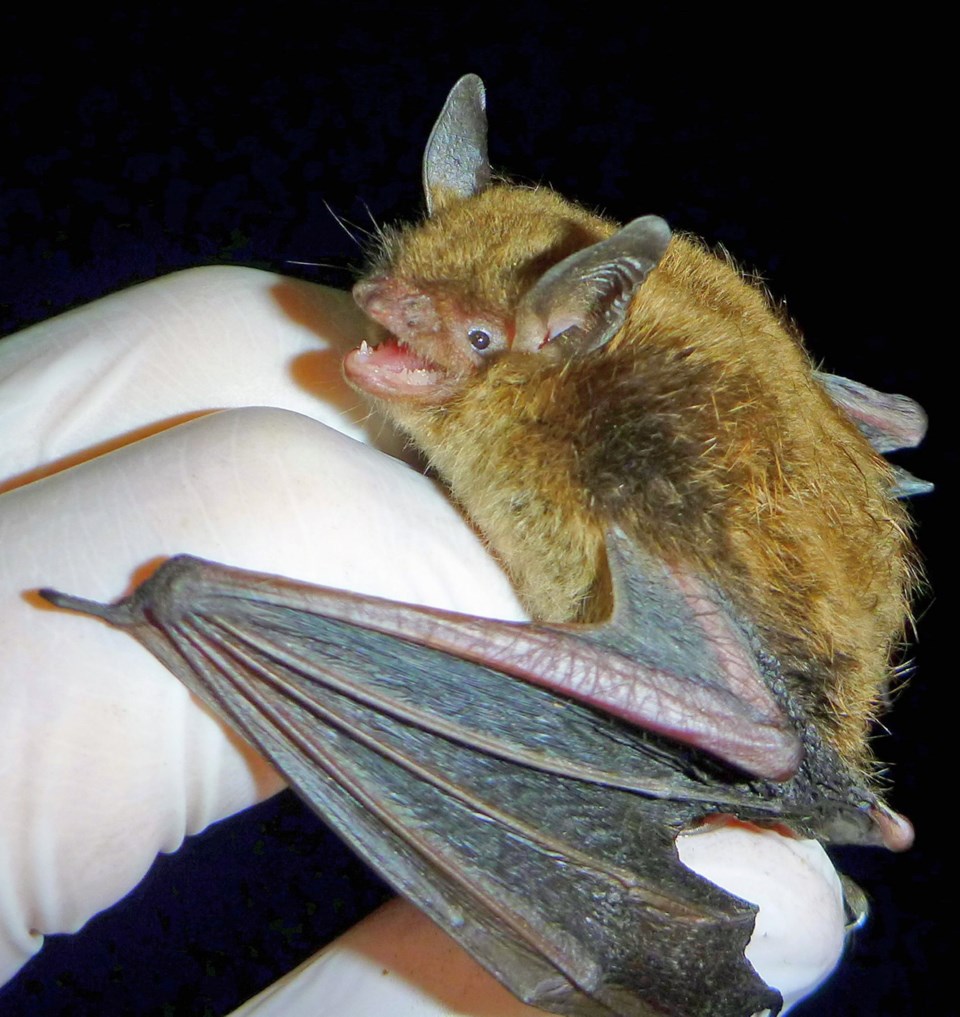Update: A Parksville man has died of rabies after coming in contact with a bat on Vancouver Island.
The Ministry of Health said the man, identified by his family on social media as 21-year-old Nick Major, was in contact with a bat in mid-May, but did not develop symptoms compatible with rabies until six weeks later.
Major, who worked as a taekwondo instructor at Cascadia Martial Arts in Parksville, died Saturday at St. Paul’s Hospital in Vancouver.
The Ministry of Health said he had no visible bite or scratch marks.
“The thing with bats is their teeth are very small and their bite marks can be microscopic and you might not even notice them,” said Dr. Bonnie Henry, B.C.’s provincial health officer. “Bats also lick themselves and the rabies virus has been found on the outside of their body, so if a bat brushes against you the virus can be transmitted through a mucus membrane, via your eyes or mouth.”
Henry said family members, close community contacts and health-care workers who cared for the man are being assessed and given post-exposure rabies preventive measures, if needed.
It’s the first confirmed death from rabies in B.C. since 2003.
— Vancouver Sun
- - -
A 21-year-old man has died from a rare case of rabies after coming into contact with a bat on Vancouver Island, B.C.’s provincial health officer confirmed Monday.
Dr. Bonnie Henry said the man developed symptoms of a viral rabies infection six weeks after an encounter with a bat in mid-May.
He died Saturday, the same day that laboratory tests confirmed a rabies infection.
Health officials withheld the man’s name to protect his family’s privacy.
Henry said in an interview that it’s not entirely clear whether the man was bitten or scratched.
“Certainly, he did have known direct contact with a bat,” she said. “But, in many cases, the early symptoms of rabies could be caused by a variety of different things. So, unfortunately, by the time rabies was considered it was quite late in the course of his illness.”
Henry warned that people who come in contact with a bat may not notice a puncture or a scratch at first.
“It can be very, very small,” she said. “That’s why it’s so important if people do have any direct contact with a bat that they have it assessed right away.
“Thankfully, it’s very rare, but we can prevent rabies by giving you an immunization if you’ve had contact with a bat.”
There have been only 24 known cases of rabies in Canada since the 1920s. The only other recorded case in B.C. was in 2003.
Henry delayed announcing the death for a couple of days to allow officials to alert and assess health-care workers, family members and anyone who was in close contact with the infected man.
“Those who need it have been offered the vaccine for protection,” she said. “It is really a theoretical risk. There’s no reported cases in the world of human-to-human transmission of rabies.”
B.C.’s Health Ministry describes rabies as an almost always fatal disease caused by a virus that infects the brain and nervous system.
“In B.C., only bats carry rabies virus and other animals are rarely infected,” the ministry states. “In other parts of Canada and North America, strains of rabies virus are present in other species such as raccoons, skunks, foxes and coyotes.”
Henry said about 13 per cent of the bats that get sent for analysis in B.C. each year test positive for rabies. “Most bats don’t carry rabies, so that’s another reason why this is so rare,” she said.
“But the really important message is if you do have contact or you’re unsure or if there’s a bat in your house, please call us so we can help you deal with it.”
Henry said the vaccine should be administered as soon as possible after contact with a bat. “But even if it’s been several weeks, the vaccine has been shown to be protective,” she said.
Symptoms of the disease in people include headache, fever, increasing difficulty swallowing, excessive drooling, muscle spasm or weakness and strange behaviour, the Health Ministry states on its website.
Pet owners are advised to make sure their animals’ vaccines are up to date and consult a veterinarian if their pets have been in contact with a bat.
lkines@timescolonist.



